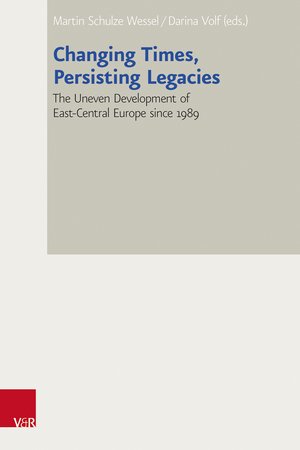
Changing Times, Persisting Legacies
The Uneven Development of East-Central Europe since 1989
Bad Wiesseer Tagungen des Collegium Carolinum, Bd. 43
Vandenhoeck & Ruprecht, Göttingen 2025, VI u. 185 S., geb.
Ladenpreis € 50,00
ISBN: 978-3-525-30333-7
Über das Buch
Proceedings of the Annual Conference of Collegium Carolinum, Fischbachau, 11–14 November 2021
Edited by Martin Schulze Wessel and Darina Volf
This volume aims to contribute to the historicization of the post-1989 transformation period in East-Central Europe by addressing the temporality of transformation from a predominantly historical perspective, but also in dialogue with the social sciences. It focuses on the four countries that form the core of East-Central Europe - Czechia, Slovakia, Poland, and Hungary - but broadens the perspective by including more general comparisons within the region as well as insightful case studies from other countries that share some important characteristics with the narrowly defined East-Central Europe, but that, at the same time are able to shed some light on certain specific features of each case. The divergent developments in East-Central Europe after 1989 are explained by investigating the prehistory of transformation in the East-Central European states and societies from various perspectives and for areas as diverse as politics, social affairs, law, economy, culture, and national identity.
Die Herausgeber
- Prof. Dr. Martin Schulze Wessel, Professor, Chair of East and Southeast European History, History Department, LMU Munich; Director of Collegium Carolinum, Research Institute for the History of the Czech Lands and Slovakia, Munich
- Dr. Darina Volf, Researcher, Department of East and Southeast European History, LMU Munich
